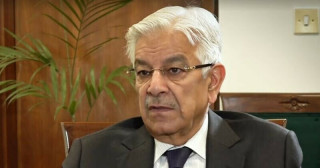ایک نئے تجزیے کے مطابق سنہ 2050 تک دنیا میں ڈیمنشیا کا شکار یا مخبوط الحواس افراد کی تعداد میں تین گنا اضافہ ہو جائے گا۔
الزہائمر ڈیزیز انٹرنیشنل کے محققین کا کہنا ہے کہ اس وقت دنیا میں اس بیماری کا شکار افراد کی تعداد چار کروڑ چالیس لاکھ ہے جو آنے والے 37 برس میں بڑھ کر 13 کروڑ 50 لاکھ تک پہنچ جائے گی۔
یہ اعدادوشمار آئندہ ہفتے لندن میں منعقد ہونے والے جی این ڈیمنشیا اجلاس میں پیش کیے جائیں گے۔
برطانیہ میں مخبوط الحواسی یا مستقل ذہنی فتور پر تحقیق کرنے والے افراد کو کینسر کے محققین کی نسبت 1/8 حکومتی امداد ملتی ہے اور خیراتی اداروں کا کہنا ہے کہ یہ رقم ناکافی ہے۔
الزہائمر ڈیزیز انٹرنیشنل کی رپورٹ کے مطابق مخبوط الحواسی کا شکار افراد میں سے زیادہ تر کا تعلق ترقی پذیر ممالک سے ہے اور اس خطے کے ممالک میں ترقی یافتہ ممالک کی نسبت اس مرض کے پھیلاؤ میں تین سے چار گنا تیزی سے اضافہ ہو رہا ہے۔
ادارے کا کہنا ہے کہ افریقہ اور جنوب مشرقی ایشیا میں اس مرض کے شکار افراد کی تعداد مزید بڑھ سکتی ہے اور 2050 تک اس بیماری کے شکار افراد میں سے 71 فیصد کا تعلق غریب اور متوسط آمدن والے ممالک سے ہوگا۔
رپورٹ میں یہ بھی کہا گیا ہے کہ بیشتر حکومتیں مخبوط الحواسی کی وبا سے نمٹنے کے لیے تیار نہیں ہیں۔
الزہائمر ڈیزیز انٹرنیشنل کے ایگزیکیٹو ڈائریکٹر مارک وورٹمین نے کہا ہے کہ یہ ایک عالمی وبا ہے جو کہ دن بدن پھیلتی جا رہی ہے اور اگر ہم مستقبل کے اندازوں کو دیکھیں تو دنیا میں معمر افراد کی تعداد میں ڈرامائی اضافہ ہوگا۔
برطانیہ کی الزہائمر سوسائٹی کے چیف ایگزیکیٹو جیریمی ہیوز کا کہنا ہے کہ ڈیمنشیا تیزی سے اس نسل کے لیے صحت اور سماجی دیکھ بھال کا سب سے بڑا چیلینج بن رہی ہے اور ہمیں فوری طور پر اس سے نمٹنے کی ضرورت ہے۔
source
الزہائمر ڈیزیز انٹرنیشنل کے محققین کا کہنا ہے کہ اس وقت دنیا میں اس بیماری کا شکار افراد کی تعداد چار کروڑ چالیس لاکھ ہے جو آنے والے 37 برس میں بڑھ کر 13 کروڑ 50 لاکھ تک پہنچ جائے گی۔
یہ اعدادوشمار آئندہ ہفتے لندن میں منعقد ہونے والے جی این ڈیمنشیا اجلاس میں پیش کیے جائیں گے۔
برطانیہ میں مخبوط الحواسی یا مستقل ذہنی فتور پر تحقیق کرنے والے افراد کو کینسر کے محققین کی نسبت 1/8 حکومتی امداد ملتی ہے اور خیراتی اداروں کا کہنا ہے کہ یہ رقم ناکافی ہے۔
الزہائمر ڈیزیز انٹرنیشنل کی رپورٹ کے مطابق مخبوط الحواسی کا شکار افراد میں سے زیادہ تر کا تعلق ترقی پذیر ممالک سے ہے اور اس خطے کے ممالک میں ترقی یافتہ ممالک کی نسبت اس مرض کے پھیلاؤ میں تین سے چار گنا تیزی سے اضافہ ہو رہا ہے۔
ادارے کا کہنا ہے کہ افریقہ اور جنوب مشرقی ایشیا میں اس مرض کے شکار افراد کی تعداد مزید بڑھ سکتی ہے اور 2050 تک اس بیماری کے شکار افراد میں سے 71 فیصد کا تعلق غریب اور متوسط آمدن والے ممالک سے ہوگا۔
رپورٹ میں یہ بھی کہا گیا ہے کہ بیشتر حکومتیں مخبوط الحواسی کی وبا سے نمٹنے کے لیے تیار نہیں ہیں۔
الزہائمر ڈیزیز انٹرنیشنل کے ایگزیکیٹو ڈائریکٹر مارک وورٹمین نے کہا ہے کہ یہ ایک عالمی وبا ہے جو کہ دن بدن پھیلتی جا رہی ہے اور اگر ہم مستقبل کے اندازوں کو دیکھیں تو دنیا میں معمر افراد کی تعداد میں ڈرامائی اضافہ ہوگا۔
برطانیہ کی الزہائمر سوسائٹی کے چیف ایگزیکیٹو جیریمی ہیوز کا کہنا ہے کہ ڈیمنشیا تیزی سے اس نسل کے لیے صحت اور سماجی دیکھ بھال کا سب سے بڑا چیلینج بن رہی ہے اور ہمیں فوری طور پر اس سے نمٹنے کی ضرورت ہے۔
source
Last edited by a moderator:






































